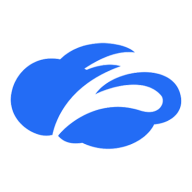


Check Point CloudGuard CNAPP and Zscaler Zero Trust Exchange Platform both compete in the cloud security and compliance market. CloudGuard tends to have the upper hand due to its comprehensive compliance and governance features, as well as its remediation capabilities, IAM role control, and visibility.
Features: CloudGuard provides compliance and governance features with strong policy depiction and comprehensive remediation capabilities. Its IAM role control offers visibility into cloud traffic and security postures. Zscaler emphasizes seamless integration and secure internet and VPN functionalities, excelling in remote access without repeated sign-ins and offering reliable threat detection.
Room for Improvement: CloudGuard users seek better third-party tool integration, enhanced reporting capabilities, and advanced encryption support. Improvements in documentation and support service efficiency are also desired. Zscaler faces criticisms over high costs and latency, with requests for more intuitive interfaces, better compatibility with non-client connectors, and enhanced DLP features.
Ease of Deployment and Customer Service: Both CloudGuard and Zscaler are praised for deployment in public and hybrid cloud environments. CloudGuard is commended for user-friendly public cloud deployment, while Zscaler caters to hybrid and private clouds. Customer service is responsive and helpful for both, though CloudGuard needs more knowledgeable initial support. Zscaler users occasionally report setup issues and slowness.
Pricing and ROI: CloudGuard's pricing is based on cloud asset numbers with annual and hourly options. Although seen as expensive, it offers a strong ROI through compliance and reduced resource needs. Zscaler is also considered costly but offers tiered user-based models, beneficial for larger user bases. Its integration of multiple security tools offsets higher costs by reducing security risks and providing time savings.
The detailed information PingSafe gives about how to fix vulnerabilities reduces the time spent on remediation by about 70 to 80 percent.
After implementing SentinelOne, it takes about five to seven minutes.
Our ability to get in and review our vulnerability stance, whether daily, monthly, weekly, or whatever it might be, has drastically improved over our prior provider.
Monitoring cloud security automatically ensures a return on investment.
When we send an email, they respond quickly and proactively provide solutions.
They took direct responsibility for the system and could solve queries quickly.
Having a reliable team ready and willing to assist with any issues is essential.
When I need help or have open questions, or if I require the capability to deploy a quick test environment, there are always people I can contact at Check Point to get my information or the environment as fast as I need it.
I have a dedicated support engineer and a presales engineer dedicated to me.
Sometimes, support takes time since the solution has some bugs that need fixing.
As soon as we need to add somebody, we just add them to NinjaOne, and then we have a script set up where it automatically deploys and adds them to whichever group we need.
I would rate it a 10 out of 10 for scalability.
Scalability is no longer a concern because Cloud Native Security is a fully cloud-based resource.
I never had any performance-related issues.
In my experience, there has been 100 percent uptime.
SentinelOne Singularity Cloud is incredibly reliable.
The cloud console is very resilient.
If there are errors, it is sometimes challenging to elaborate or troubleshoot since it is not transparent enough to understand what to search for.
It is rapidly evolving, and sometimes mistakes occur, necessitating testing.
If I had to ask for anything to make it easier, it would be signed images that are GPG signed and a public repository where we can get the bits from.
If they can merge Kubernetes Security with other modules related to Kubernetes, that would help us to get more modules in the current subscription.
As organizations move to the cloud, a cloud posture management tool that offers complete cloud visibility becomes crucial for maintaining compliance.
I need more integration from the code-to-cloud principle.
It would be nice to have periodic updates on what people should do, maybe with some analysis or something.
I require consistency in the user interface to ensure everything is streamlined into the same look and feel.
They might be able to identify if something is missing with Zscaler.
With very little negotiation involved, we just let them know what we could pay and they were willing to meet us at slightly above what we paid with Sophos, which was still very fair for what we were looking at.
The price was very, very important to us, and it came down to the price when we were doing our evaluations WatchGuard and SentinelOne.
Covering our 50,000 endpoints would have nearly bankrupted most security programs, even well-funded ones like ours.
It is not cheap, of course, yet it is a necessity.
From a licensing and cost perspective, it is really competitive.
The real-time detection and response capabilities of SentinelOne Singularity Cloud impressive because it is a platform that uses artificial intelligence to determine what is normal and what is abnormal and can lock down any virus it may encounter.
We were shown how ransomware can be immediately stopped in real-time. That was huge.
Our previous product took a lot of man hours to manage. Once we got Singularity Cloud Workload Security, it freed up our time to work on other tasks.
One of the main reasons we use the solution is that it is great at identifying risks that are critical to our business.
The CDR helps detect anomalous behavior and respond to threats before they become an issue.
Detecting misconfigurations in the cloud is what the CSPM delivers.
The solution is cloud-based with the latest inspection engines, which I find to be amazing.



SentinelOne Singularity Cloud Security protects cloud workloads, offering advanced threat detection and automated response. It integrates seamlessly with cloud environments and secures containerized applications and virtual machines against vulnerabilities.
SentinelOne Singularity Cloud Security is renowned for its efficiency in mitigating threats in real-time. The platform integrates effortlessly with existing cloud environments, ensuring robust cloud security management with minimal manual intervention. Securing containerized applications and virtual machines, it excels in threat intelligence and endpoint protection. However, improvements are needed in performance during high workload periods, and more integrations with third-party tools and better documentation would be beneficial. Users often find the installation process complex, support response times slow, and the dashboard's navigation unintuitive.
What are the key features of SentinelOne Singularity Cloud Security?In specific industries, SentinelOne Singularity Cloud Security is implemented to safeguard critical data and infrastructure. Organizations in finance, healthcare, and technology depend on its real-time threat detection and automated response to protect sensitive information. Its ability to secure containerized applications and virtual machines is particularly valuable in dynamic environments where rapid scaling is necessary.
Check Point CloudGuard CNAPP is a cloud-native application protection platform designed to secure your cloud environments and applications. By combining CSPM, CWPP, CSNS, and WAF capabilities, it provides a comprehensive solution to protect your cloud environment from a wide range of threats.
CloudGuard CNAPP delivers end-to-end cloud security, including workload protection, vulnerability management, and identity management, all while maintaining continuous compliance. It uses advanced AI to detect and prevent threats, offering protection for containers, serverless applications, and APIs. CloudGuard CNAPP also emphasizes simplifying security management, integrating directly with cloud platforms like AWS, Azure, and GCP.
CloudGuard CNAPP provides customers with more context to drive actionable security and smarter prevention, from code-to-cloud, across the application lifecycle. More Context Means Actionable Security, Smarter Prevention. The primary components are:
What are the key features of CloudGuard CNAPP?
What are the key benefits to consider?
Check Point CloudGuard CNAPP simplifies cloud security management with integrated protection and automation.
Zscaler Zero Trust Exchange Platform acts as a VPN alternative for secure remote access, cloud protection, and zero-trust strategies. It enables secure data transmission, supports remote work, and enhances compliance through a cloud-based architecture, offering improved performance and simplified management.
Designed for organizations seeking secure application access and robust data protection, Zscaler Zero Trust Exchange Platform delivers a comprehensive solution through seamless VPN connectivity, data loss prevention, and SSL inspection. Its cloud integration ensures scalability and reliability, while its interface provides intuitive management. Companies benefit from automatic secure access, minimizing constant authentication needs, and safeguarding sensitive data. The platform allows easy deployment and integration with diverse identity providers, granting granular control for access and application segmentation. Despite powerful capabilities, enhancements are needed in speed, bandwidth, and legacy support, with users noting interface and configuration challenges.
What are the key features of Zscaler Zero Trust Exchange Platform?In specific industries, Zscaler Zero Trust Exchange has been implemented to enhance security protocols in fields like finance and healthcare. By prioritizing data protection and compliance, it assists companies in safely managing sensitive information and meeting regulatory requirements. Organizations leverage its features to ensure secure operations across remote and cloud environments, adapting to industry-specific needs with customizable access and security controls.
We monitor all Cloud Security Posture Management (CSPM) reviews to prevent fraudulent reviews and keep review quality high. We do not post reviews by company employees or direct competitors. We validate each review for authenticity via cross-reference with LinkedIn, and personal follow-up with the reviewer when necessary.